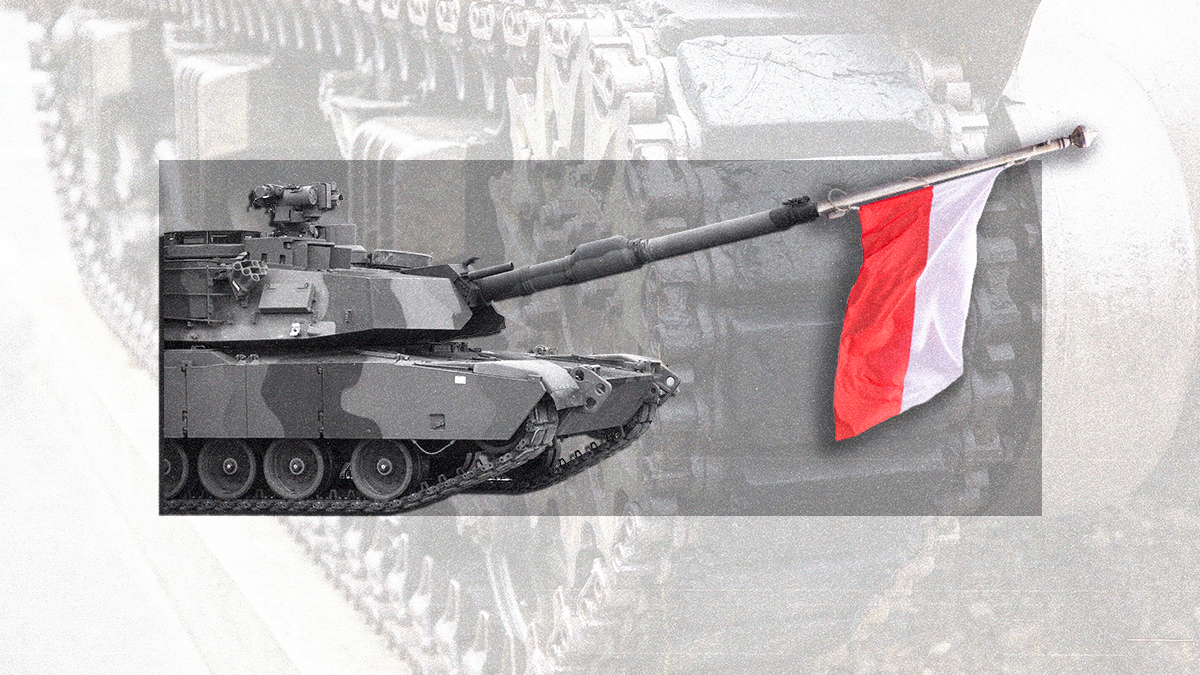There’s a story that people sometimes still tell about the Polish military. It’s the one where the cavalry makes a suicidal charge against Nazi tanks in September of 1939 and gets cut to pieces.
Although that version of the Battle of Krojanty isn’t quite true – in reality the Poles did better than it sounds – the romantic version of it, fueled by an overzealous Italian journalist’s account, has stuck for decades. Some see it as a tale of heroism, others as a proverb of recklessness, but in either telling, Poland’s basic problem is the same: They didn’t have enough weapons to fend off the Nazi onslaught.
Eighty years later, Poland is on a mission to ensure that myths of this kind are never created again. The country is in the middle of what its leaders have called an “unprecedented” military build-up that, if successful, would make it the largest land army in the European Union.
The numbers are impressive. Over the next 12 years, Poland aims to double the size of its army to more than 300,000 troops. By comparison, France currently has the biggest EU army, with about 200,000 people on active duty.
This year’s defense budget is already the largest in Poland’s history, part of a broader plan to increase military spending to more than 3% of GDP, up from 2.4% last year. Within NATO, only Greece and the US spend more than that.
All told, between now and 2035, Warsaw wants to spend more than $100 billion on the military, and the binge has already begun: Over the past year alone, the government has shelled out more than $10 billion on arms purchases from the US and South Korea, ordering hundreds of tanks, howitzers, and advanced rocket systems.
Why is Poland doing this? First, to replenish all the kit that it’s sent to Ukraine over the past year. You’ve read about the dozen or so German-made Leopard tanks that Warsaw wants to gift to Kyiv, but the Poles have already transferred hundreds of Soviet-era tanks, rockets, and other arms.
According to Marek Świerczyński, a defense analyst at Polytika Insight in Warsaw, Poland has already given away as much as a third of its tanks, and needs to replace them -- fast.
But there’s a bigger aim too. Poland, a country with a long history of dismemberment and subjugation by its neighbors, has been steadily modernizing its military ever since joining NATO in 1999. But last winter’s border spat with Belarus over migrants – followed by arch-foe Russia’s invasion of Ukraine – pushed Warsaw into overdrive.
“It's the return of history to this part of the world, the return of Russian imperialism today,” says Świerczyński. “And Poland now feels like it actually has the money to spend on preventing a repetition of that history.”
History aside, Poland’s modernization drive might affect the present too. Warsaw’s enthusiasm could light a fire under other NATO members that still haven’t reached the military expenditure of 2% of GDP that the alliance requires, says Max Bergmann, Europe director at the Center for Strategic and International Studies. “Poland can say, ‘look, if we can invest in defense, you can invest in defense, because you are wealthier than we are – so what are you doing?’”
Still, it’s not clear Warsaw can really pull this all off. One limitation: cold cash. Poland wants to spend more than $115 billion by 2035. Fresh off a few years of massive pandemic spending, Warsaw isn’t exactly rolling in złoty these days. In fact, to help finance the modernization drive, the government has set up a special fund that operates outside of normal budget processes, earning a rebuke from the IMF earlier this month.
The other limitation: warm bodies. Massively expanding the size of the armed forces requires … people, not only for the service itself, but for the support and defense industries around it.
Świerczyński says that might be hard to find, given that Poland is in a long-term demographic downturn. “In general,” he says, “our economy is probably not ready to share all of this workforce with the armed services and defense industry.”
Still, Poland’s ambitions alone are enough to shake things up. However far Warsaw makes it, Bergmann of CSIS says, “Poland going forward is going to be setting the tone militarily on the continent, especially in the East.”
More For You
People in support of former South Korean President Yoon Suk Yeol rally near Seoul Central District Court in Seoul on Feb. 19, 2026. The court sentenced him to life imprisonment the same day for leading an insurrection with his short-lived declaration of martial law in December 2024.
65: The age of former South Korean President Yoon Suk Yeol, who was sentenced to life in prison on Thursday after being found guilty of plotting an insurrection when he declared martial law in 2024.
Most Popular
In an era when geopolitics can feel overwhelming and remote, sometimes the best messengers are made of felt and foam.
The Hungarian election is off to the races, and nationalist Prime Minister Viktor Orbán is facing his most serious challenger in 16 years.
Does skepticism rule the day in politics? Public opinion data collected as part of the Munich Security Conference’s annual report found that large shares of respondents in G7 and several BRICS countries believed their governments’ policies would leave future generations worse off.
